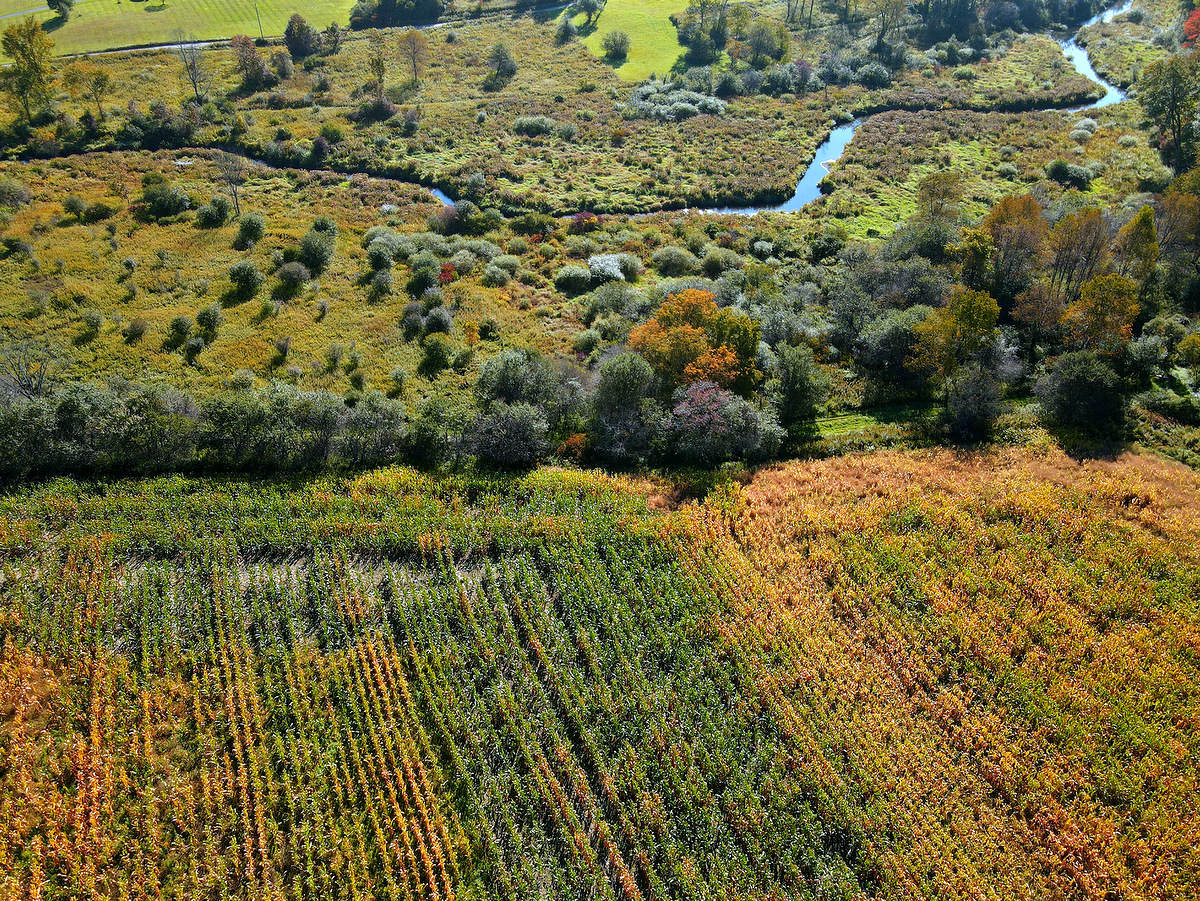The Finger Lakes Land Trust (FLLT) and New York State Department of Environmental Conservation (DEC) protected 260 acres in Summerhill, Cayuga County, as part of the state’s Water Quality Improvement Project (WQIP) program. The property features 10,000 feet of frontage on Fall Creek, the source of Cornell University’s drinking water supply and the largest tributary to Cayuga Lake.
WQIP funds were used to purchase a perpetual conservation easement to protect the land, a diverse mix of upland forest, wetlands that include uncommon plant species, and agricultural fields that will be left in production. The easement includes a 120-acre buffer zone comprised of high-quality wetland on Fall Creek that will be left in its natural state.

Photo: Chris McAuliffe
Protection of the property helps secure Cornell University’s drinking water, which is drawn from Fall Creek and also helps maintain municipal water supplies drawn from Cayuga Lake. FLLT is actively working on acquiring additional parcels in the area using the remaining grant funds to protect the Cayuga Lake watershed.
The newly protected property is located in proximity to other conservation lands including Summerhill State Forest and the FLLT’s Dorothy McIlroy Bird Sanctuary, which is adjacent to Lake Como, the headwaters of Fall Creek. This area supports native brook trout and a portion of it is located within one of New York’s Important Bird Areas.
The WQIP program funds projects that directly improve water quality or habitat, promote flood risk reduction, restoration, and enhanced flood and climate resiliency, or protect a drinking water source. DEC’s sustained partnership with FLLT will have lasting impacts on Cayuga Lake’s water quality and habitat and complements the State’s ongoing commitment to reduce the frequency of harmful algal blooms and a recently announced pollution reduction budget to improve water quality standards.
“Clean water begins on land and DEC and our partners are continuing to transform State investments into water quality solutions that will last for generations,” DEC Interim Commissioner Sean Mahar said. “DEC is proud to again partner with the Finger Lakes Land Trust to preserve vulnerable headwaters and help protect Cayuga Lake water quality at the source for generations to come.”
“Completion of this conservation easement is a win for water quality in Fall Creek, the largest tributary to Cayuga Lake,” said FLLT President Andrew Zepp. “We’re grateful to the landowners and New York State for their commitment to this project through the source water protection program.”
Conservation easements are voluntary legal agreements that permanently limit future land use in order to protect the land’s conservation value. Lands subject to conservation easements remain in private ownership, on local tax rolls, and available for traditional uses such as farming and hunting.
See the full press release here.

